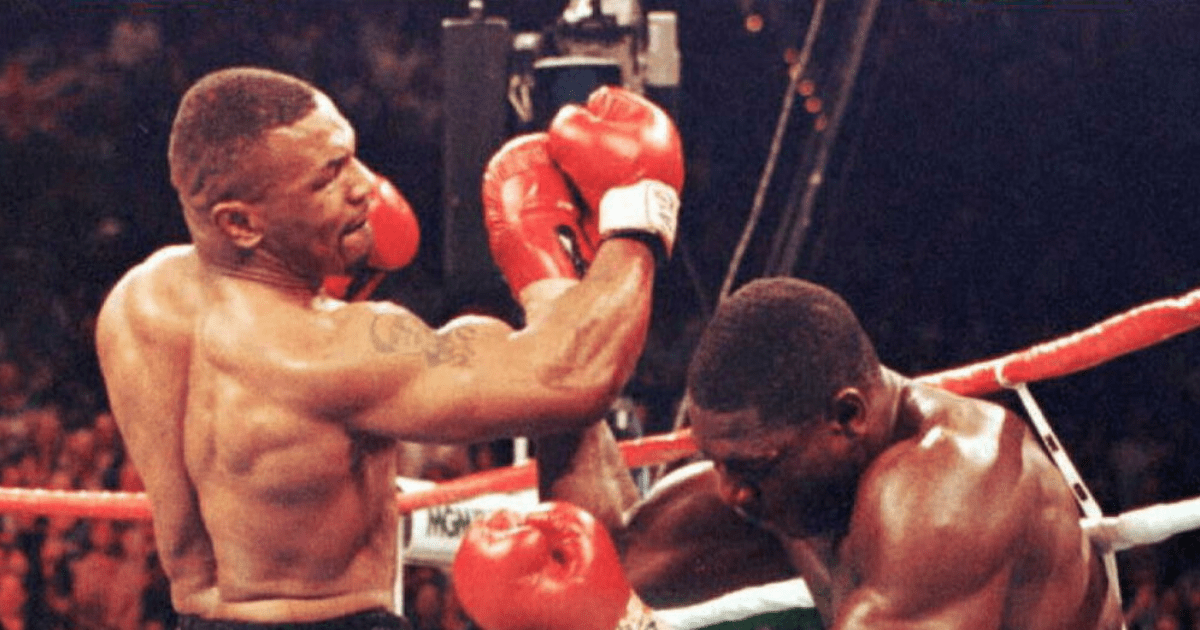Mike Tyson's Historic Boxing Career
Mike Tyson, known as 'Iron' Mike, had a legendary boxing career in the 1980s and 90s, where he became a superstar by knocking out opponent after opponent. Despite his age of 57, Tyson is gearing up for a huge fight against Jake Paul this summer.
Tyson's Last Fight and Return to the Ring
Mike Tyson finished his professional boxing career in 2005 with a KO loss to Kevin McBride. His last win was in June 2003 against Clifford Etienne. In 2020, Tyson made a return to the ring in an exhibition fight against Roy Jones Jr. The fight ended in an unofficial draw, with Jake Paul securing a win on the undercard.
Tyson's Thoughts on Fighting Jake Paul
Tyson expressed excitement about his upcoming fight with Jake Paul, acknowledging Paul's growth as a boxer. Tyson mentioned that it would be thrilling to see what Paul's ambition and experience could bring to the ring, labeling it a full circle moment from when he started Paul's boxing journey on an undercard.
Frequently Asked Questions
What are the risks associated with professional boxing?
Like all contact sports, professional boxing has inherent risks. They include acute injuries, such as cuts and bruises, broken bone, head trauma, and potential chronic conditions caused by repeated impacts, such concussion syndromes, or neurological disorders. Proper training, safety equipment, and adherence to boxing regulations help mitigate risks, but they can never be fully eliminated. Accepting and understanding these risks are essential to choosing to box professionally.
How do you progress from amateur to Professional Boxing?
Transitioning from amateur to professional boxing entails a significant step up in competition, training intensity, and mental preparation. A boxer who wants to become a professional must have a solid track record. This is usually achieved by competing in local and national competitions. It is also critical to obtain a professional boxing license and align with experienced managers and trainers who can guide career decisions and secure professional bouts.
What diet should a boxer who is a novice follow?
A boxer who is a novice should eat a healthy diet. This will help him recover from intense training and fuel his workouts. In general, it is recommended that you consume a mixture of carbohydrates for energy and lean protein for muscle growth and repair. As well, vitamins, minerals and hydration are essential. Consulting a sports nutritionist to develop a diet plan that is tailored for the boxer’s weight class and training schedule can be beneficial.
What qualities should a person look for in a trainer or coach of boxing?
When looking for a trainer or boxing coach, it is important to look at their coaching style compatibility and experience. They should also have a good understanding of the technical and strategy aspects of boxing. A good trainer will also emphasize safety, conditioning, and personal growth. In order to reach your potential in boxing, it’s important to have a trainer who motivates and communicates effectively.
How long usually does it take for a person to become professional boxer.
The time required to become a boxer professional can be very different. The time it takes to become a professional boxer can vary widely. It all depends on an individual’s skill level at the start, their ability to adapt to the sport and the quality training they receive. On average, it could take several years of dedicated training and successful amateur experience before one is ready to turn professional. However, some exceptional talents might advance more quickly, while others may need more time to develop.
What role does a manager or promoter play in the career of a professional boxer?
Promoters and managers are crucial to a professional boxer’s career. Managers manage the career of boxers, negotiate contracts, and take care of their business affairs. The managers also help the boxer to choose the best fights, and look after his interests. Promoters focus their efforts on organizing events, marketing the fights, and attracting sponsor and audience attention.
Can anyone learn to box?
Not everyone can compete at the professional level. Professional boxing demands a unique combination of talent as well as physical abilities, mental strength and dedication. The sport has inherent risks that potential boxers will have to be willing and able to take. A thorough evaluation by a trainer will help determine the potential of a person to have a successful career in boxing.
Statistics
- Around 60% of professional boxers supplement their income with other activities or jobs, due to variability in fight earnings.
- Cardiovascular fitness is critical, with a focus on high intensity interval training, comprising up to 40% of a boxer’s conditioning program.
- A study showed that most professional boxers have spent more than 4 years in training before their first professional bout.
- Less than 10% of professional boxers are undefeated throughout their career, highlighting the sport’s competitive nature.
- An analysis of boxing injuries suggests that 90% involve the head, neck, and face, emphasizing the importance of protective gear.
- Nutrition experts emphasize that over 70% of a boxer’s diet should focus on carbohydrates and proteins for energy and recovery.
- Reports suggest that successful professional boxers can earn upwards of 50 times more than the median purse for entry-level professionals per fight.
External Links
usaboxing.org
boxingnews24.com
sweetsciencefitness.com
teamusa.org
ringtv.com
expertboxing.com
precisionstriking.com
How To
How to Manage Recovery After Intense Boxing Training
It is important to recover quickly after intensive boxing training. This will improve your performance and progress. Reduce muscle soreness by implementing a cool-down after your workout that involves stretching and low-intensity aerobics. Nutrition is important immediately after training. A combination of carbohydrates and protein can help muscle recovery. Water is essential, so replace fluids lost through exercise. For recovery, you need to get 7-9 hours of sleep each night. Regular use of foam rollers and massage therapy can also support muscle recovery and reduce stiffness.

